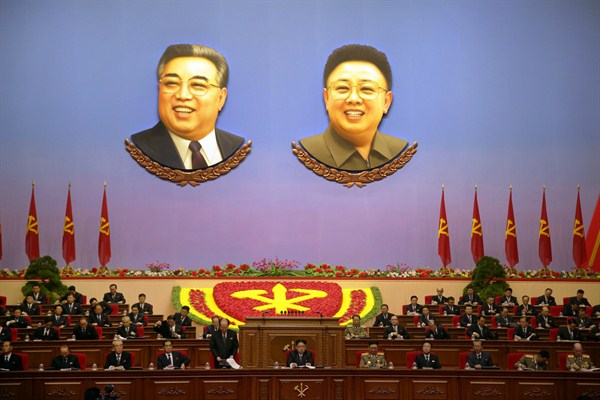The Seventh Congress of the Workers’ Party of Korea, the first such meeting in 36 years, ended Monday with much pageantry and fanfare in the North Korean capital, Pyongyang, but with little evidence that North Korea has changed its policy line in any substantive way. Kim Jong Un received the new title “party chairman”—his late father remains “eternal party secretary” and his grandfather “eternal president.” A new economic plan was also announced, while top positions in the party were reshuffled. Other than Kim appearing for the first time in a Western-style suit to deliver his speeches, the party congress was an entirely retro affair, business as usual for North Korea.
There was no mention of significant economic reform, as some observers had hoped, and no indication that sanctions or military pressure had convinced Pyongyang to abandon its nuclear program. On the contrary, Kim in his opening speech praised North Korea’s nuclear “deterrent” and reiterated Pyongyang’s determination that it be internationally recognized as a nuclear-armed state.
Yet there were also subtle signals that North Korea was prepared to tone down its belligerence and enter into dialogue with the United States not only over its nuclear program, but also over diplomatic normalization and a peace agreement to supersede the 1953 Korean War armistice. Given North Korea’s recent provocations and the upcoming U.S. election, however, the chances of the Obama administration responding to these overtures may be slim.

